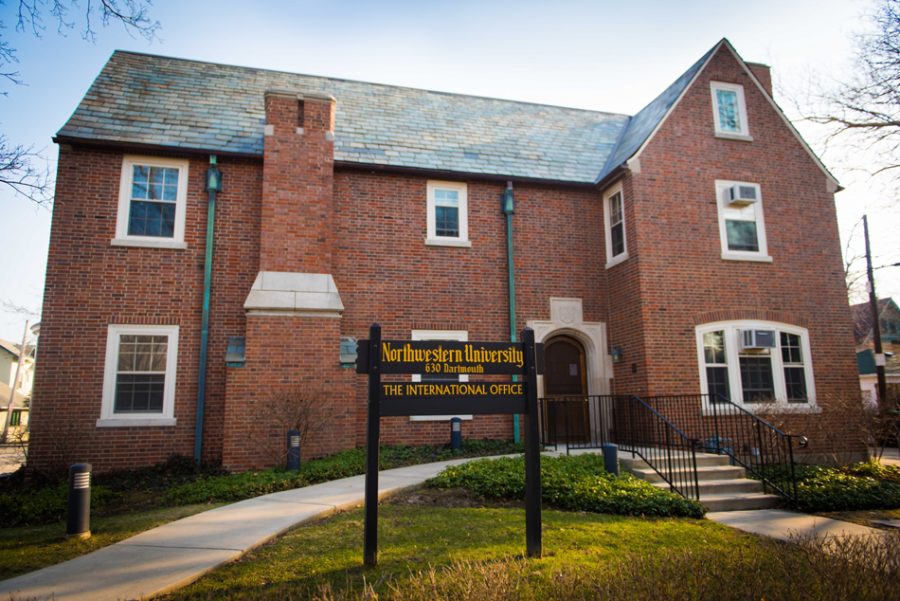International Office prepares as Trump administration moves toward crackdown on visa overstays
Daily file photo by Daniel Tian
The International Office is preparing for a possible policy change that would impact student visa holders. U.S. Citizenship and Immigration Services filed a policy memorandum that would make it easier to start the clock on unlawful presence.
May 17, 2018
The Trump administration moved last week toward heightened visa restrictions that would make it easier to bar international students from re-entering the country.
U.S. Citizenship and Immigration Services issued a policy memorandum revising its guidance regarding F-1 and J-1 visa holders. Those found to be violating the terms of their immigration status will begin accruing unlawful presence the day after they discontinue authorized activity.
The guidance proposal will go through a public comment period until June 11. If moved forward by the agency, the final policy will go into effect Aug. 1.
“USCIS is dedicated to our mission of ensuring the integrity of the immigration system. F, J, and M nonimmigrants are admitted to the United States for a specific purpose, and when that purpose has ended, we expect them to depart, or to obtain another, lawful immigration status,” USCIS Director L. Francis Cissna said in a May 11 news release. “The message is clear: These nonimmigrants cannot overstay their periods of admission or violate the terms of admission and stay illegally in the U.S. anymore.”
The new draft policy is a stark departure from past guidance, which determined that visitors began accruing unlawful presence the day after the agency or an immigration judge issued a formal violation. International students and other visiting scholars with more than 180 days of unlawful presence in a single visit can be prohibited from entering the country for three years.
The federal government issues visas to scholars from abroad on specific conditions of authorized activity, including study, research and work with some restrictions. Northwestern depends on these visas to host its roughly 4,000 international students and 1,600 visiting scholars, said Ravi Shankar, director of the International Office.
Shankar said the University is developing plans to prepare for possible outcomes of the monthlong comment period. Should the policy recommendation go through in its current form, he said, the International Office will organize education and outreach to visa holders before the policy is scheduled to take effect.
“Our main goal is to make sure that the students don’t fall out of status,” he said. “Even without this rule, we are very diligent and disciplined. … We will have to be very vigilant on this issue.”
Though the responsibility of compliance falls to international students and scholars, Shankar said the office tries to minimize the number of students committing violations like unlawful presence. Staff meet with students to double-check registration before they report it to the federal government, he said, and offer an approval process to students needing to take a medical leave without violating registration requirements.
Part of a broad effort to restrict immigration to the U.S., the Trump administration’s move signals a crackdown on high-skilled immigrants, ones for whom the president himself has expressed favoritism. Immigration advocates say the policy proposal is contradictory, and that it’s addressing an issue that arises infrequently.
“Like American students, international students should be allowed to complete their studies at their chosen institution, without the stress or fear of being deported based on some oversight of which they may not be aware,” Jill Welch, deputy executive director for public policy at NAFSA: Association of International Educators, said in a May 14 statement. “This is a solution to a non-issue.”
Shankar said few students commit violations, and most who do are not doing so intentionally. USCIS estimated a 5.48 percent visa overstay rate during the 2016 fiscal year.
“International students are one of the most heavily regulated populations in the country,” Shankar said. “This is not a crisis, so I’m not exactly sure why the administration wants to do this at this time. I can only think there’s a political motivation behind it.”
Email: [email protected]
Twitter: @_perezalan_


